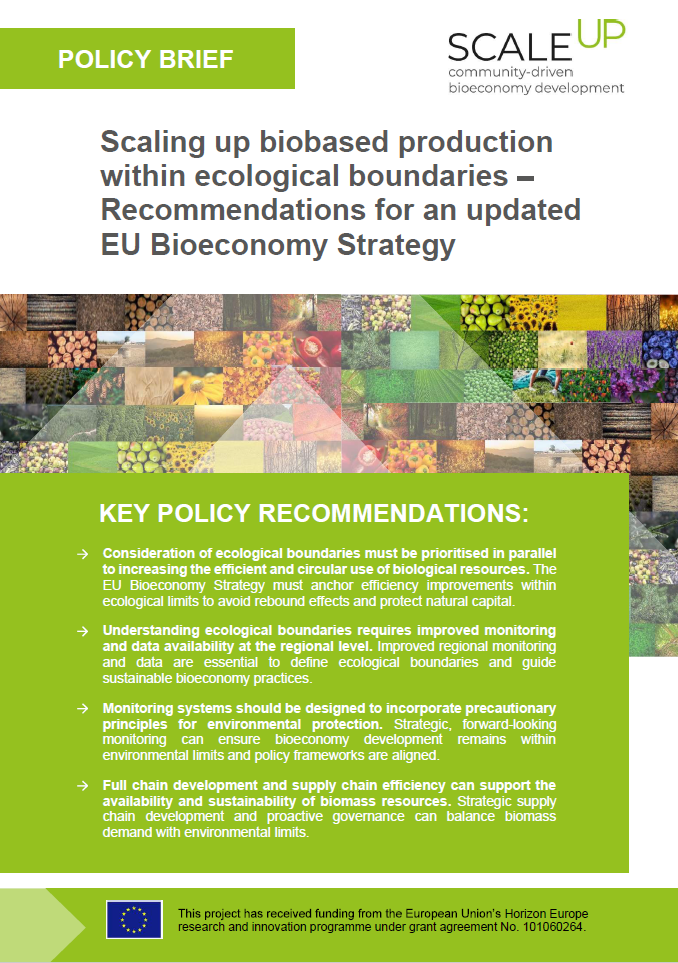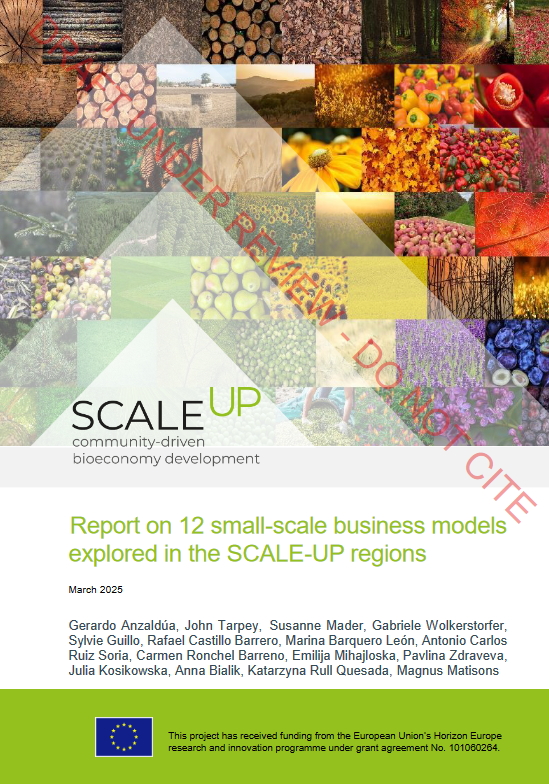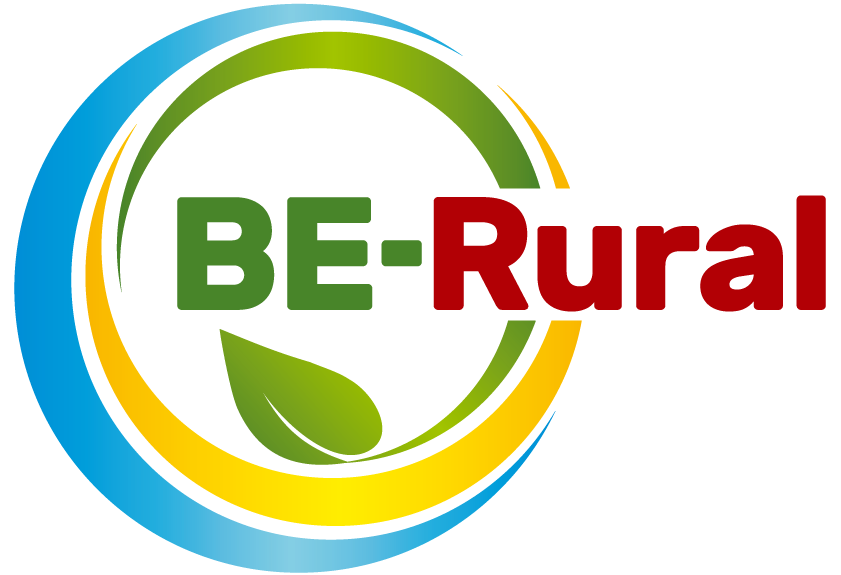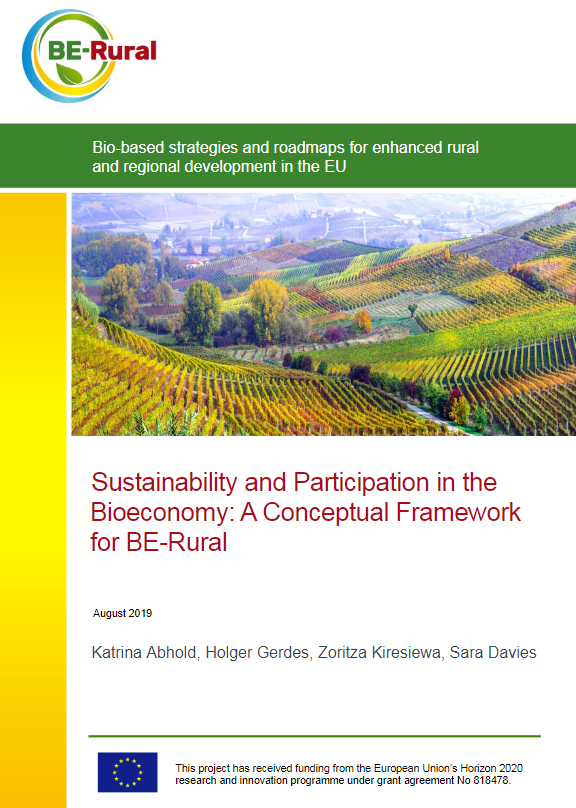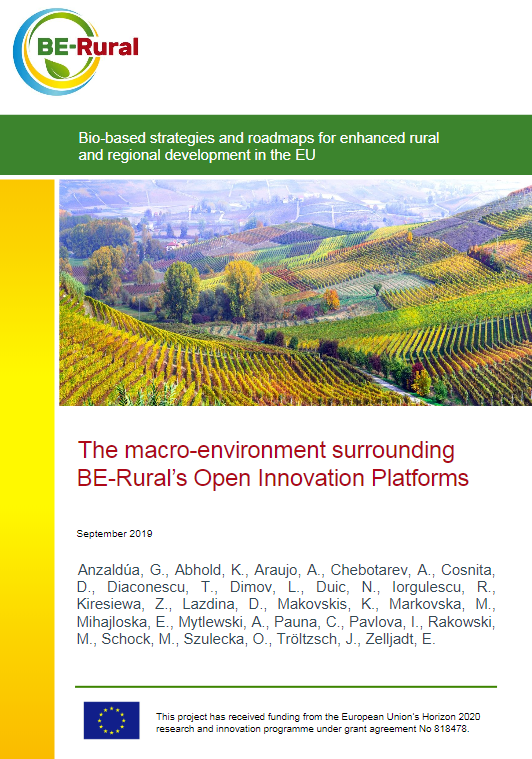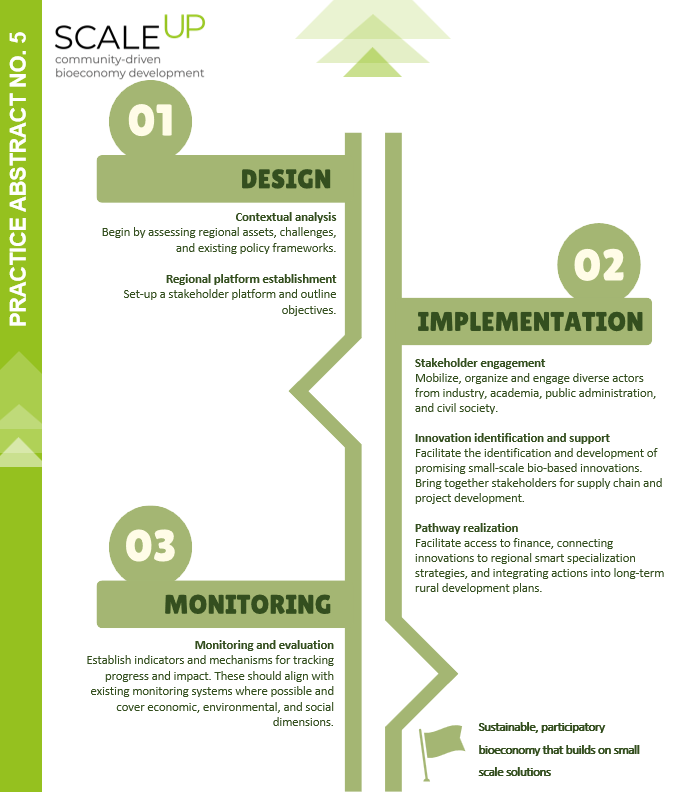
© SCALE-UP project, 2025
Evidence-based Guidance Framework for Designing, Implementing and Monitoring Small-scale Bio-based Solutions in Rural Areas
- Publication
- Citation
Gerdes, H., Kiresiewa, Z., Anzaldúa, G., van der Voort, S., & Feil, F. (2025): Evidence-based guidance framework for designing, implementing and monitoring small-scale bio-based solutions in rural areas. Ecologic Institute.
This report presents the evidence-based guidance framework developed in the SCALE-UP project to support the design, implementation and monitoring of small-scale bio-based solutions in rural areas. The framework draws on the experiences of six regional platforms established under the SCALE-UP project – in Mazovia (Poland), Northern Sweden, Strumica (North Macedonia), Upper Austria, the French Atlantic Arc, and Andalusia (Spain) – each reflecting distinct geographical, socio-economic, and institutional context.
Regional Perspectives: Learning from Six Platforms
Experiences across the regions have shown that small-scale bio-based solutions can drive sustainable rural development and that the bioeconomy is not only a technical or economic agenda, but also a societal one, shaped by local contexts, cultures, and governance. A key factor for success is the role of platforms and networks, which bring together diverse actors to co-create visions, align support instruments, and share responsibility.
From Design to Monitoring: A Structured but Flexible Process
Built on the experiences of six rural platforms across Europe, a practical guidance framework has been developed to help regional and local decision-makers design, implement, and monitor small-scale bio-based solutions. It promotes participatory approaches, flexibility, and alignment with broader sustainability goals and enables regions to connect local strengths with EU strategies and advance inclusive rural bioeconomy transitions.
Conclusion
Looking ahead, long-term strategies, stable funding, and effective monitoring will be crucial to support regional development and just transition. EU and national policymakers can support this by ensuring policy coherence and reducing administrative barriers. Sustained investment in local capacity building will enable rural regions to advance the bio-based transition and strengthen their role in Europe’s sustainable future.





